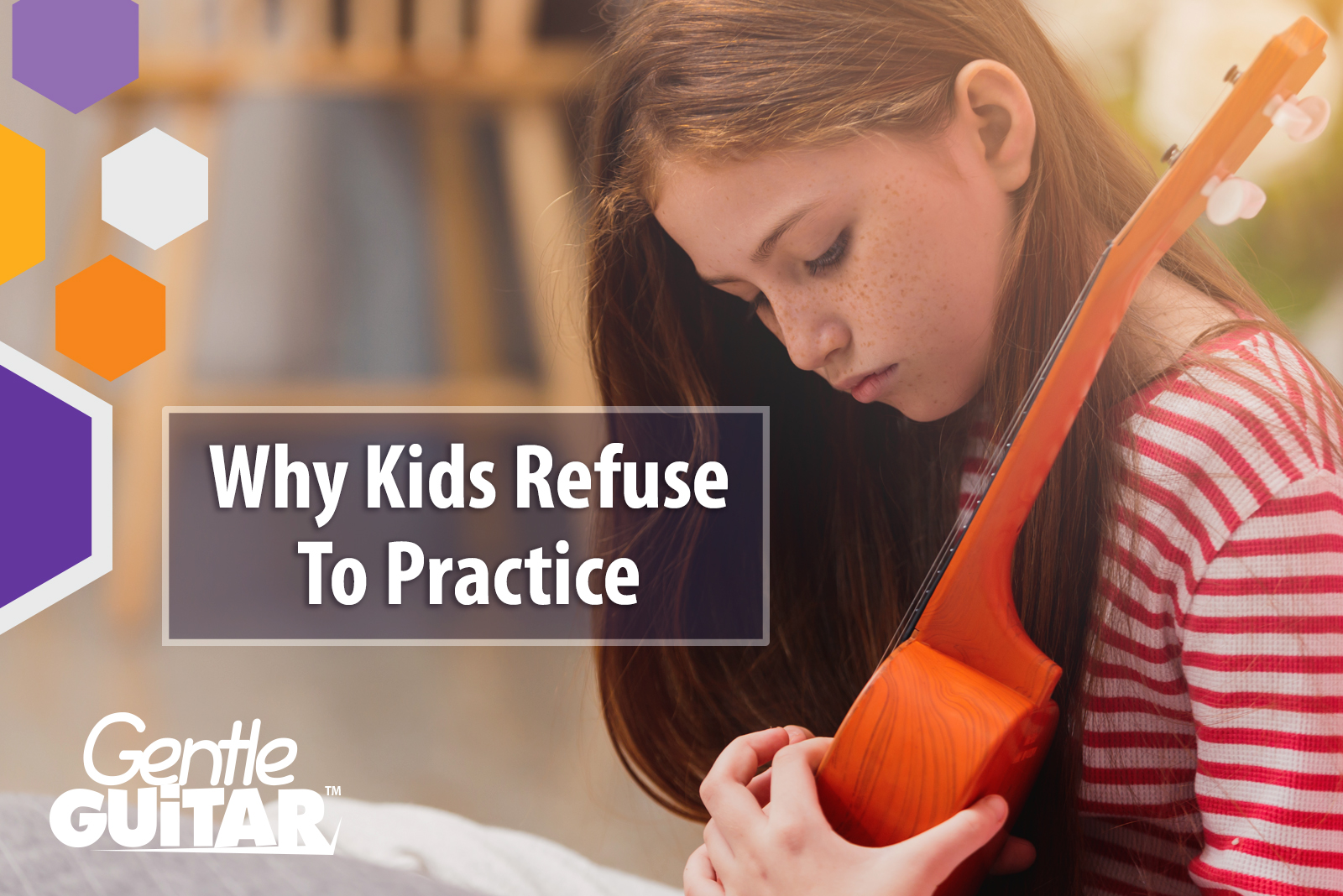Why Kids Won’t Practice Their Music Homework

Why Kids Won’t Practice… And What To Do About It
We’re all familiar with how it feels when faced with a demoralising or daunting task. We hesitate, we procrastinate, we find every excuse available to put things off. A child can experience this feeling too. Similar to adults, kids procrastinate if they feel disheartened by the task in front of them.
If you have a child who refuses to practice, the child is likely feeling discouraged, defeated and overwhelmed. This may only be a subtle feeling, but it is enough for the child to start making endless excuses!
One of the triggers for kids feeling discouraged and refusing to practice is that, deep down, they feel like a failure. Practice has become too hard. They want to do it, but they don’t know how to keep up.
Think back to all the things that you procrastinated over. . .
Think back to all the things that you procrastinated over, or kept putting off until it was too late. Were any of them caused by your feelings of overwhelm, self-doubt and/or lack of confidence? A child will act and feel the same.
Why do kids feel this way about music practice? Is picking up an instrument difficult or unpleasant? Practicing music isn’t hard… at least it shouldn’t be. But over time, if not done in the correct way, it can become overwhelming.
Let me explain with an example:
If you’ve kept track of all your income and expenses during the year, then filing your end of year tax return is relatively straightforward. You get on with it and feel a sense of satisfaction when it’s successfully completed.
However, if you’ve neglected to keep the books organized and up-to-date, the task becomes more daunting than it ought to be. You might need to work through messy drawers full of unsorted receipts and invoices. You might even feel as though you’re stuck in a tunnel with no light at the end! Some kids feel this way each time they sit down to do their daily practice.
Why do kids feel this way?
Kids get overwhelmed if they learn new things too quickly. It’s tempting to move on to new songs without having mastered the technical foundations covered in previous weeks. That’s the culprit. The pace of learning becomes overwhelming without the teacher or child realising it.
Feelings of frustration creep in when kids can’t play well — despite them having learned the material, but not having mastered it thoroughly. They put off practicing, or they avoid it altogether. As a result the teacher feels pressured to move on to new things to keep the child’s attention. But they still won’t have mastered the foundations. The frustrations accumulate! It becomes a vicious cycle.
That is because learning music is a physical skill. Musicians are small muscle athletes, and the mind will always run ahead of the muscle memory! It’s not enough to learn something new and try it just once or twice. Only thorough and deliberate repetition of movements results in fluency and enjoyment. We all know this, but it is not communicated enough among parents and music teachers.
What ‘s the solution to the practice problem?
If you are dealing with students who procrastinate or refuse to practice, you’re not alone. It’s a well-known struggle for kids, teachers and parents all over the world.
As we’ve already established, practicing a music instrument isn’t hard if it’s done in the correct way. And since we’ve also established that musicians are small muscle athletes, the solution is to help the child understand that music is a physical discipline. Since most kids under the age of 12 are too young to understand this concept, at Gentle Guitar™ we always involve a family member in the learning process.
Having clear communciation between the teacher and the parent is key, so that the parent can then ensure that the young child practices the homework correctly. At Gentle Guitar™, some of our students enjoy practicing right from day one. Some kids have an innate drive for achievement, or have an excellent work-ethic enforced by their parents. However, that’s rare. Most students and parents need tools, tips and a gentle learning approach.
At Gentle Guitar™ we have developed a teaching method designed to solve the practice problem. Look out for our proven resources and tips in this and future issues.





